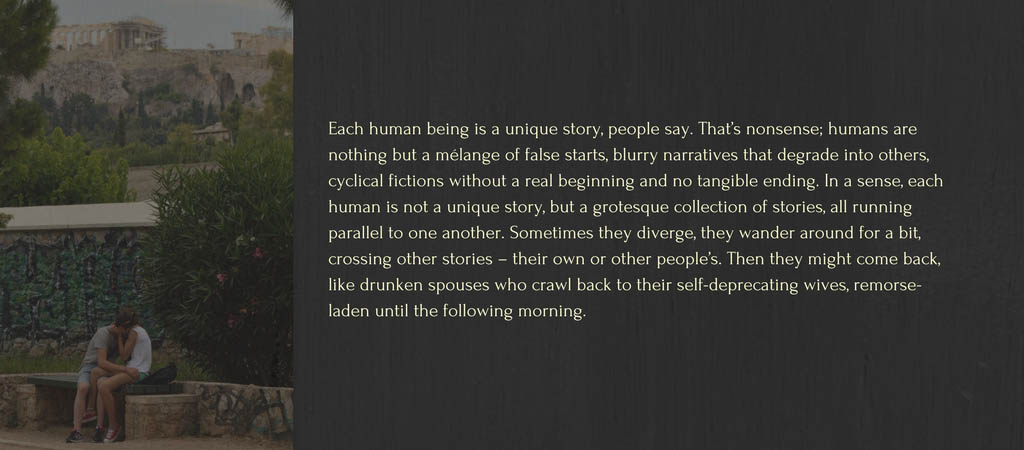The other day, as I was writing the article on fate versus chance in Frankenstein, I realized something: the trope of resisting fate forms the backbone of many great tragedies and stories in general. Defying destiny, resisting fate, is perhaps the ultimate insolence humans can display.
As such, there is something immensely powerful in it. At first I began to write an article on the topic, until I realized that I… have already. An entire chapter of my novel To Cross an Ocean: Apognosis basically talks about the protagonist’s struggle regarding destiny, kismet, resisting fate or surrendering to it.
Is it better to submit to it and avoid further heartache, or should one attack it fiercely, be the result what may? Or, just perhaps, is the concept of fate nothing but a man-made illusion?
What follows is a word-for-word copy of the novel’s 15th chapter. I have only added the headlines, to make the text more suitable for the purposes of this blog.


